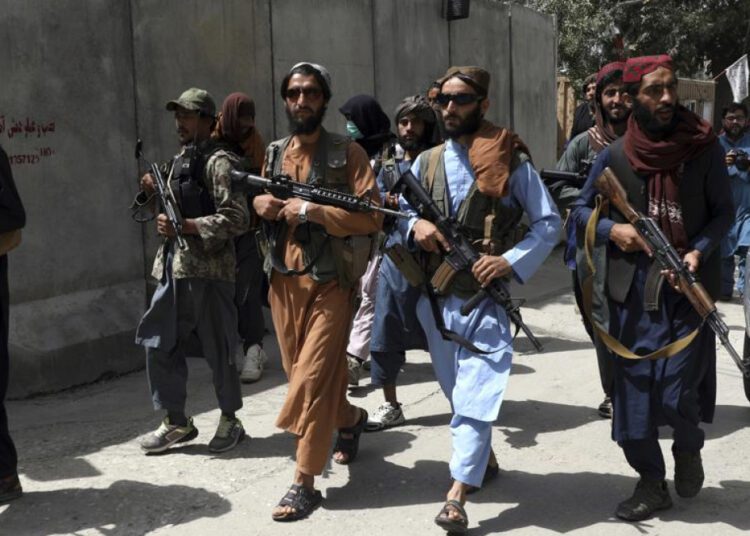UNITED NATIONS — Al-Qaeda’s past ties to the recently empowered Taliban have the potential of making Afghanistan a safe haven for extremists, and “terrorist groups enjoy greater freedom there than at any time in recent history,” UN experts said in a report.
In the wide-ranging report, the experts also said extremists linked to both al-Qaeda and the Islamic State (IS) group are successfully advancing in Africa, especially in the turbulent Sahel. And they said the IS continues to operate “as an entrenched rural insurgency” in Iraq and Syria, where its so-called caliphate ruled a significant swathe of the two countries from 2014-2017 when it was defeated by Iraqi forces and a US-led coalition.
In what it called “a bright spot” in Southeast Asia, the panel of experts said both Indonesia and the Philippines reported “significant gains” in disrupting IS and al-Qaeda-affiliated “terrorism” and “some optimism” that their operational capability “may be significantly degraded.”
The report to the UN Security Council by the panel of experts monitoring sanctions against al-Qaeda and the IS, called the Taliban’s return to power on Aug. 15 amid the chaotic final withdrawal of US and NATO troops after 20 years the most significant event of the last six months of 2021.
The panel of experts said “there are no recent signs that the Taliban has taken steps to limit the activities of foreign terrorist fighters in the country.” On the contrary, it said, terrorist groups are enjoying “greater freedom,” though member states “have not reported significant new movements of foreign terrorist fighters to Afghanistan.”
The experts noted that al-Qaeda released a statement congratulating the Taliban on its victory on Aug. 31, but since then it has maintained “a strategic silence, likely an effort not to compromise Taliban efforts to gain international recognition and legitimacy.”
“Al-Qaeda is also continuing to recover from a series of leadership losses and is assessed to lack the capability to conduct high-profile attacks overseas, which remains its long-term goal,” the panel said.
Al-Qaeda’s leader, Ayman al-Zawahri was reported alive in January 2021, it said, “but member states continue to believe that he is in poor health.”
The experts noted that Amin Muhammad ul-Haq Saam Khan, who coordinated security for bin Laden, returned to his home in Afghanistan in late August. And they said an unnamed country reported that bin Laden’s son, Abdallah, visited in October for talks with the Taliban.
As for the IS group, the panel said while it controls limited territory in Afghanistan, “it has demonstrated a continuing ability to mount sophisticated attacks, adding to the complexity of the security situation in Afghanistan.” As an example, it cited the complex attack at Kabul airport on Aug. 27 in which more than 180 people were killed.
Member states said the IS’s strength in Afghanistan has risen from an estimated 2,200 to near 4,000 following the release of several thousand prisoners, according to the panel, which said one country estimated that half were foreign fighters.
The experts said the Taliban views IS “as its primary kinetic threat,” that seeks to be the “chief rejectionist force in Afghanistan with a wider regional agenda threatening neighbouring Central and South Asian countries.”






Discussion about this post